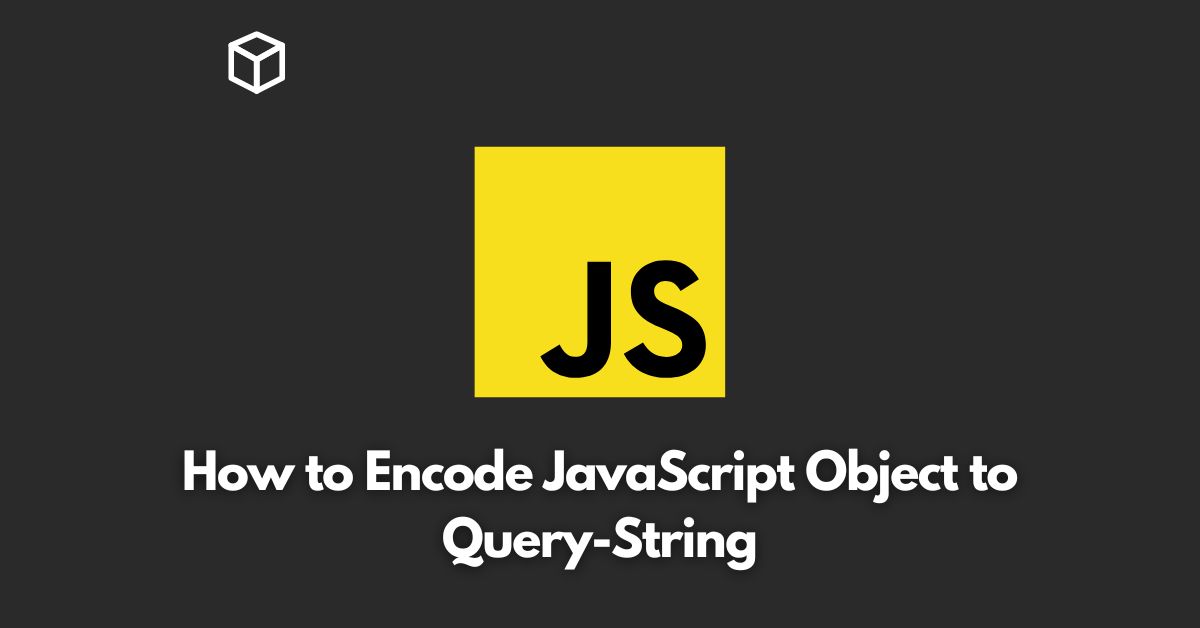The use of query strings in web development is a crucial aspect of building web applications and APIs.
Query strings are a way of passing data from one page to another or from the client to the server.
In JavaScript, query strings can be created by encoding JavaScript objects into a query-string format.
This Javascript tutorial, will guide you through the process of encoding JavaScript objects into query-strings, step by step, with code examples.
Encoding a JavaScript Object to a Query String
The encoding process starts by creating a JavaScript object, which is a collection of key-value pairs that represent the data that you want to pass as a query string.
To encode the object into a query-string format, you need to encode each key-value pair in the object using the following syntax: key=value.
Here’s an example of a JavaScript object:
let obj = {
name: "John",
age: 30,
city: "New York"
};
</code>To encode this object into a query string, you can use the following code:
function encodeQueryString(obj) {
let queryString = "?";
for (let key in obj) {
queryString += key + "=" + obj[key] + "&";
}
return queryString.slice(0, -1);
}
let queryString = encodeQueryString(obj);
console.log(queryString);
// Output: ?name=John&age=30&city=New%20YorkIn the above code, the function encodeQueryString takes the JavaScript object as an argument and returns a query string.
The function uses a for-in loop to iterate through each key-value pair in the object and adds it to the query string.
The resulting query string is returned by the function.
Handling Special Characters
Special characters, such as spaces, in the query string need to be encoded to ensure that they are properly interpreted by the server.
The encodeURIComponent function in JavaScript is used to encode these special characters.
Here’s an updated version of the code that takes care of encoding special characters:
function encodeQueryString(obj) {
let queryString = "?";
for (let key in obj) {
queryString += key + "=" + encodeURIComponent(obj[key]) + "&";
}
return queryString.slice(0, -1);
}
let queryString = encodeQueryString(obj);
console.log(queryString);
// Output: ?name=John&age=30&city=New%20YorkIn the updated code, the encodeURIComponent function is used to encode special characters in the value part of each key-value pair.
Conclusion
Encoding JavaScript objects into query strings is an essential aspect of web development, especially when building web applications and APIs.
This tutorial has provided a step-by-step guide to encoding JavaScript objects into query strings, along with code examples.
The process of encoding involves creating a JavaScript object, iterating through each key-value pair in the object, and encoding each pair using the key=value syntax.
The resulting query string can be used to pass data between the client and the server.





